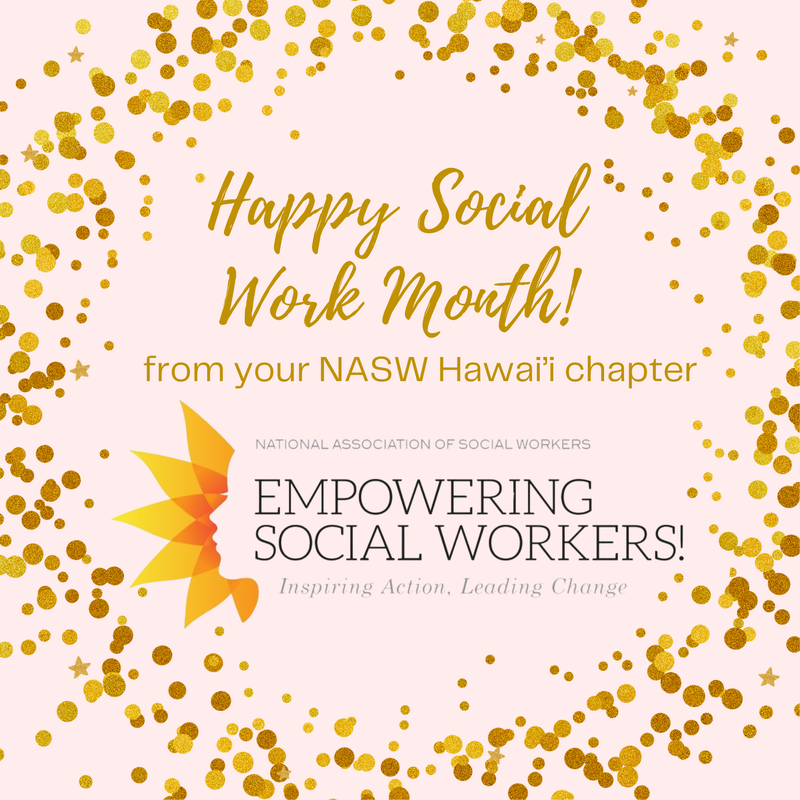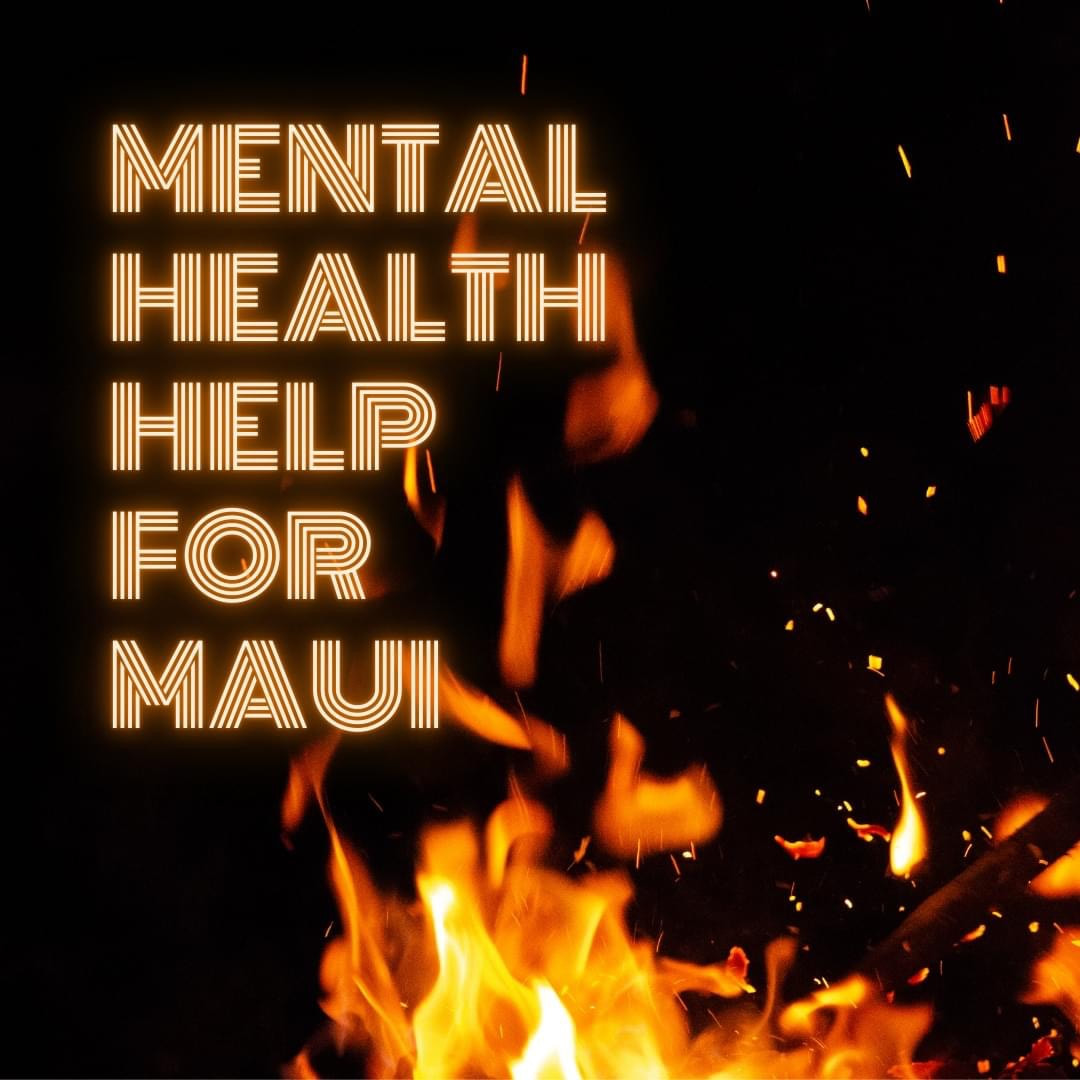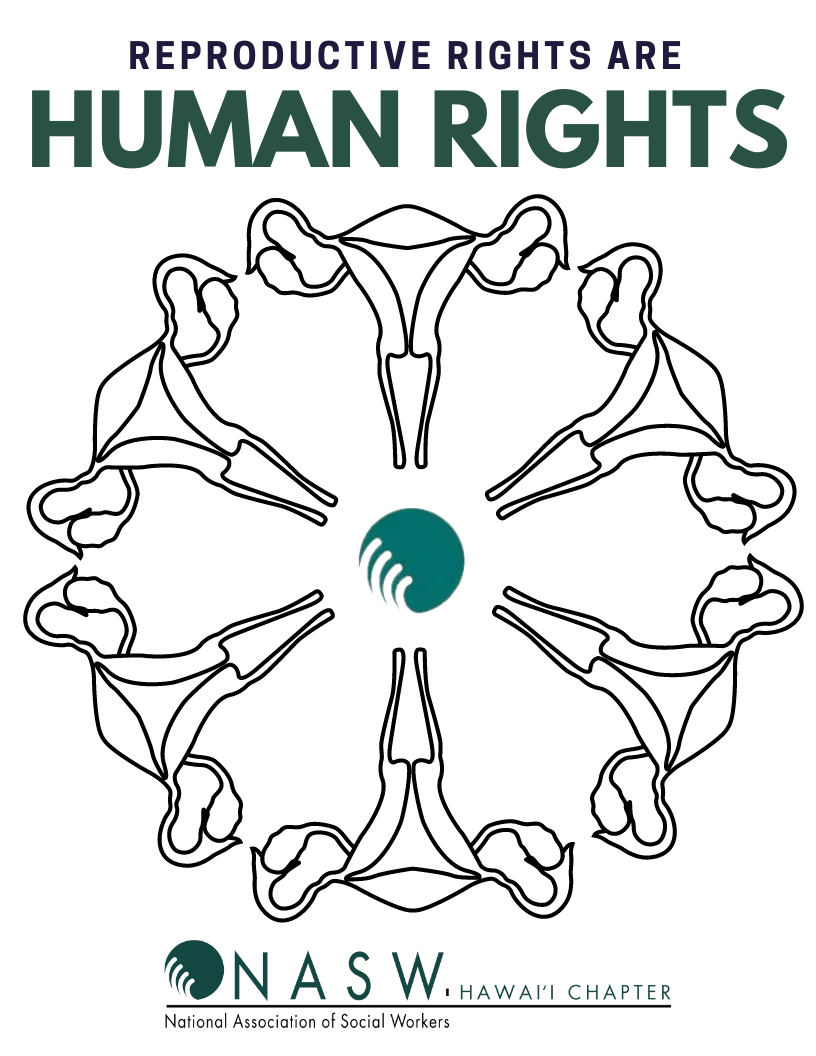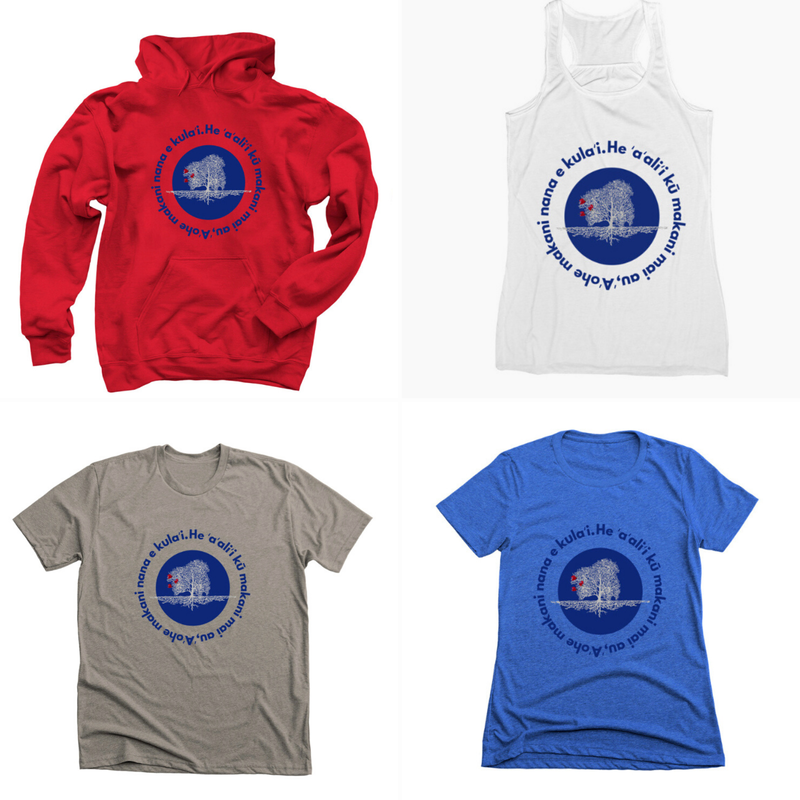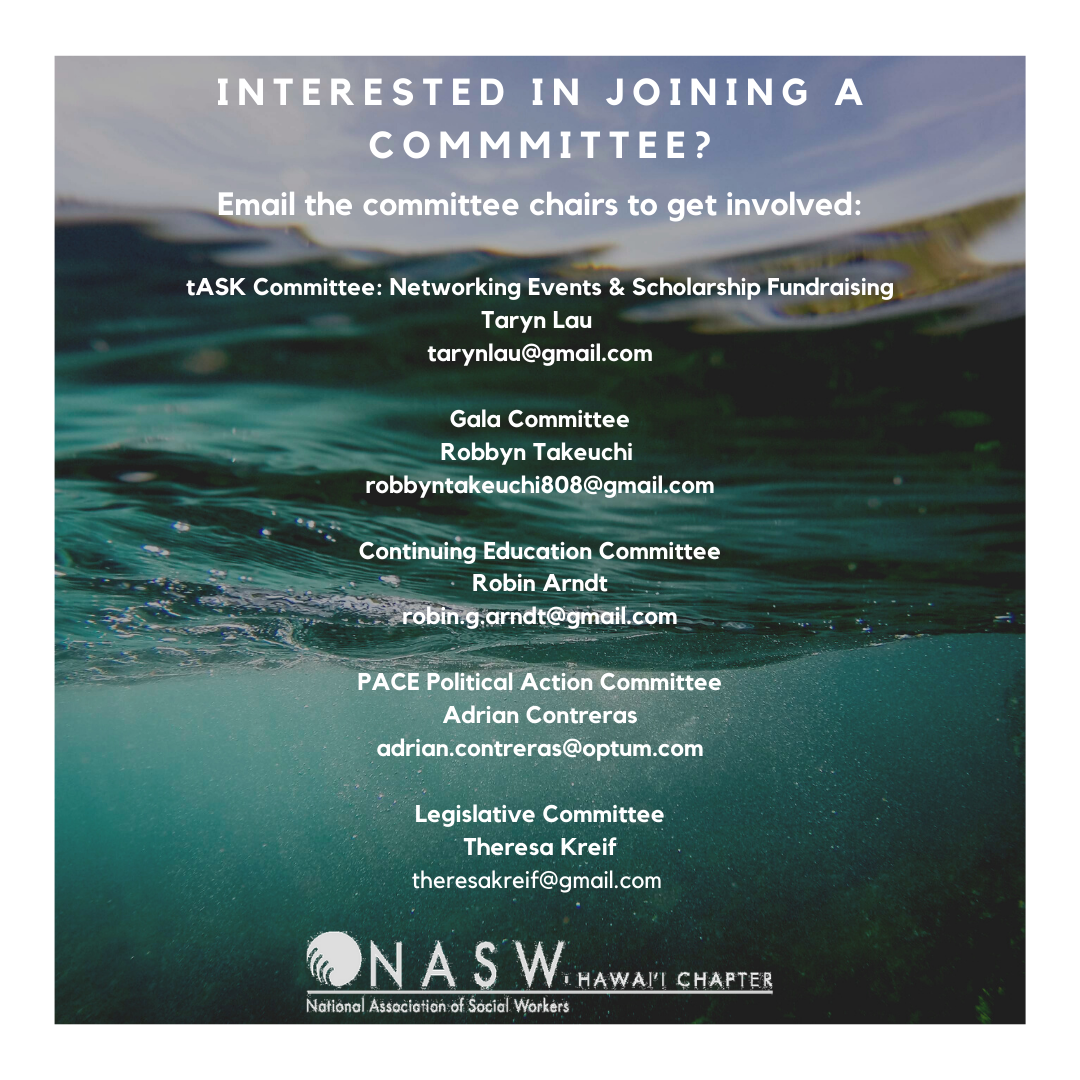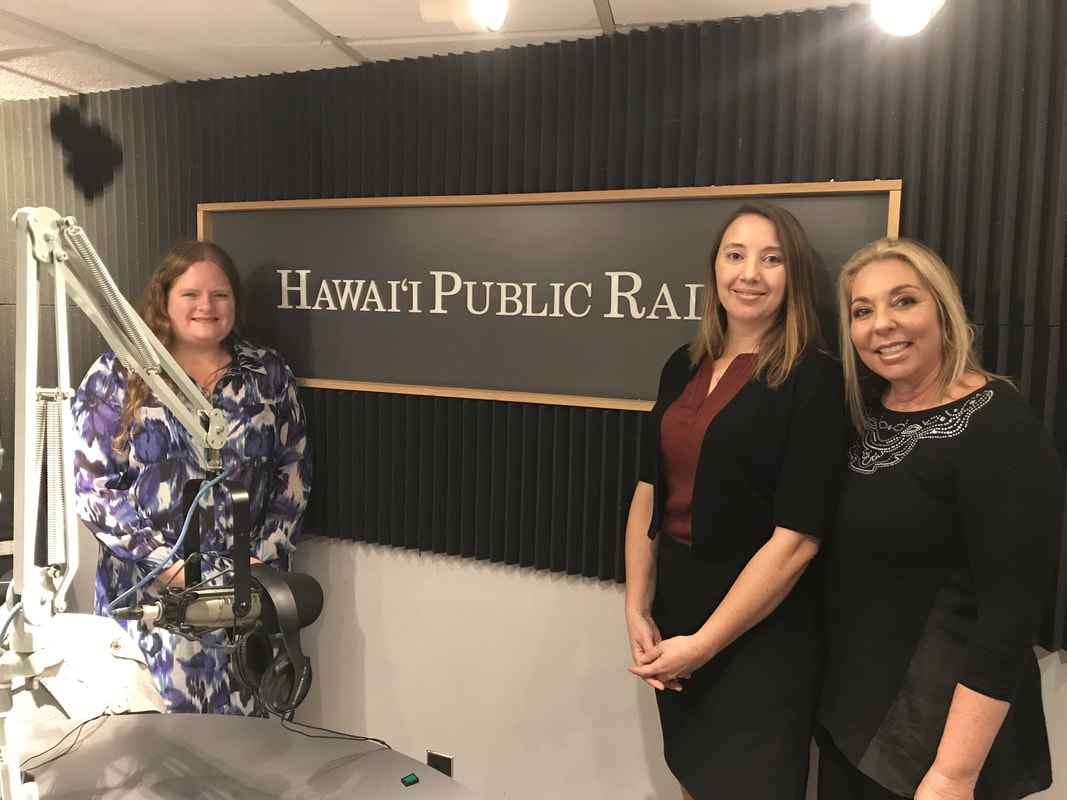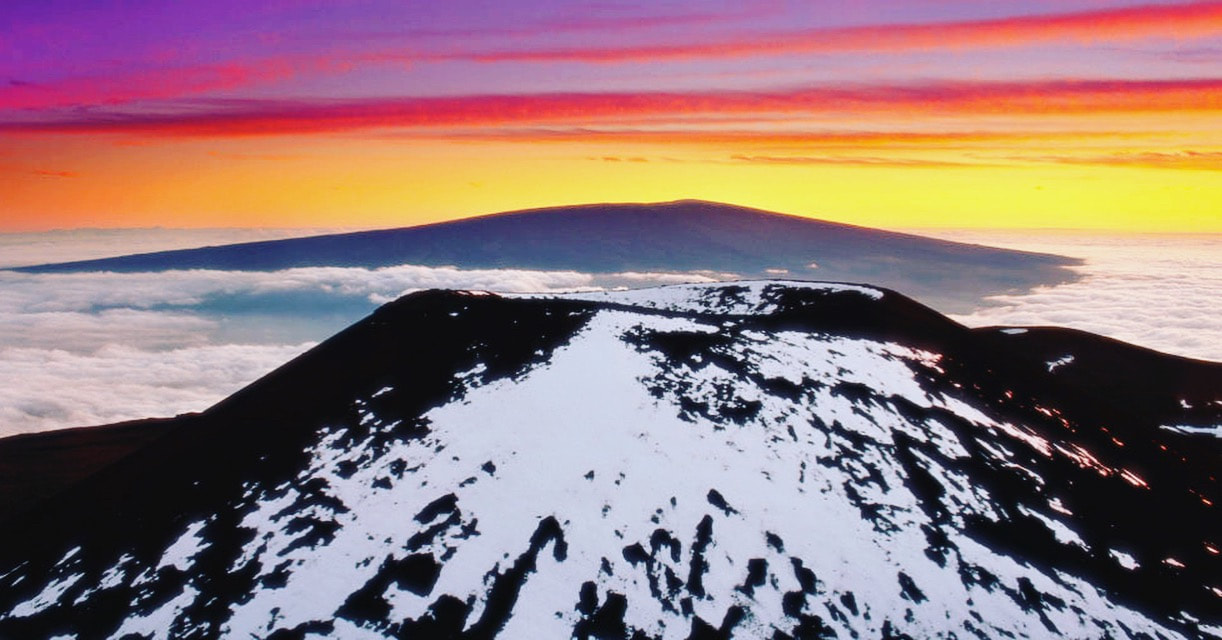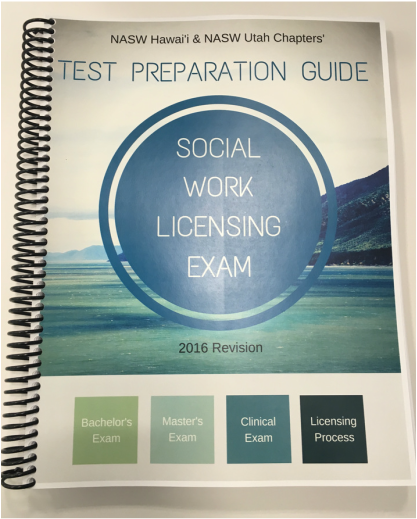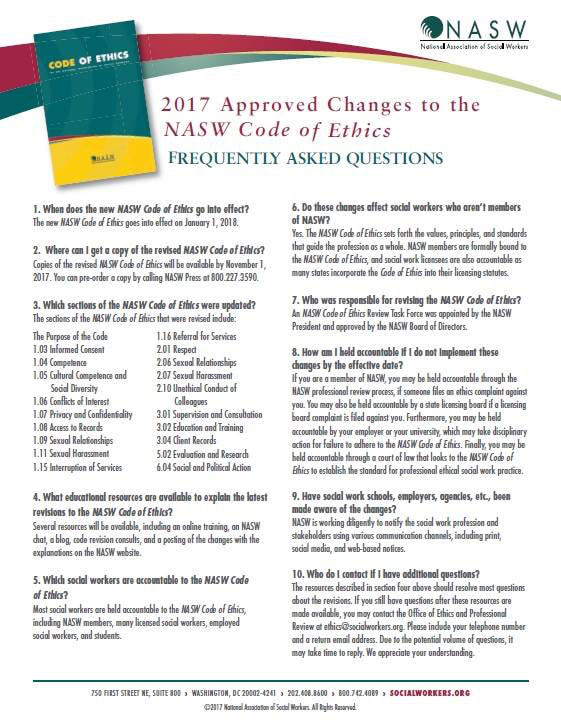Join NASW!
With your membership, you are both a member locally of the Hawai'i Chapter and Nationally.
Meet the Candidates for the 2024-2025 NASW Hawai'i Board
If you are interested in supporting our efforts, we have compiled ways to help here. We understand there is a tremendous amount of aloha for Maui, from social workers from across the country and internationally. At this phase of the recovery, we humbly ask at this time to provide your kokua (help) from afar.
Please consider donating to local relief efforts
Hawaii Community Foundation-Maui Strong
Maui Foodbank
If you are in need of services, please reach out to your available local resources, listed here:
Maui Disaster Recovery & Relief
Maui Emergency Management
Maui Fires People Locator
Hawaii CARES 988 hotline
Please consider donating to local relief efforts
Hawaii Community Foundation-Maui Strong
Maui Foodbank
If you are in need of services, please reach out to your available local resources, listed here:
Maui Disaster Recovery & Relief
Maui Emergency Management
Maui Fires People Locator
Hawaii CARES 988 hotline
|
Please consider donating to local relief efforts Hawaii Community Foundation-Maui Strong Maui Foodbank If you are in need of need services, please reach out to your available local resources, listed here: Maui Disaster Recovery & Relief Maui Emergency Management Maui Fires People Locator Hawaii CARES 988 hotline The National Association of Social Workers (NASW) will oppose a decision by the U.S. Supreme Court to overturn Roe v. Wade and eliminate access to essential reproductive health care.
A majority of states are already poised to prohibit abortion outright, overturning what has been a firmly established law for almost 50 years. This will increase burdens on vulnerable populations. Communities of color, people who earn a low income, people who are LGBTQ+, and people living in rural communities who have already been harmed by the state-led efforts to restrict insurance coverage of reproductive care or criminalize the provision of abortion services will be the most severely impacted. Furthermore, the overturning of Roe v. Wade sets a dangerous precedent for the erasure of an individual’s right to bodily autonomy as well as the right to exercise freedom of choice in accessing health care services. Such a dramatic change in course in legal precedent will further divide our nation and embolden efforts to erode essential personal protections of civil liberties and human rights. While a final opinion by the Court has not officially been released, NASW remains resolute in its commitment to protect reproductive rights and freedoms as outlined in our 2021 Blueprint of Federal Social Policy Priorities. NASW affirms all individuals have a right to bodily autonomy, that abortion is health care, and that all individuals have the right to freedom of choice in accessing essential health care services most especially their reproductive health. We were featured on Hawai'i Public Radio's "The Conversation" on March 9, in honor of Social Work Month and to talk about challenges facing the profession. Listen via the link below!
hawaiipublicradio.org/post/conversation-state-social-work NASW Hawai'i Executive Director Sonja Bigalke-Bannan, Francie Julien-Chinn, Assistant Professor at the Myron B. Thompson School of Social Work at the University of Hawai`i at Mānoa, and Dana Kano, the Oahu Child Welfare Services (CWS) Section 4 Administrator |
Support the NASW Hawai'i Scholarship Fund
Donations are tax-deductible and dedicated to local programming in Hawai'i. Please help support scholarships for BSW, MSW and PhD students and support educational events for social workers across the state!
PROTECTION & PRESERVATION OF MAUNA KEA.
SOCIAL WORK STATEMENT OF SOLIDARITY. 08-23-19 Background Significance Kānaka Maoli or Native Hawaiians are the Indigenous people of Ka Pae ‘Āina—the Hawaiian Archipelago. For many Kānaka Maoli, Maunakea represents a oneness and connection to the natural and spiritual worlds-- a sacred place and the zenith of ancestral ties to creation (Saks,2019): The upper regions, Wao Akua, are the realms of the Akua (creator) and the summit is a temple of the Supreme Being in not only Hawaiian culture but also in many histories throughout Polynesia. It is the home of Na Akua (divine deities) and Nā ʻAumākua’(divine ancestors), as well as the meeting place of Wākea, the Sky Father and Papahānaumoku, the Earth Mother---progenitors of the Hawaiian people. It is also both a burial ground and the embodiment of ancestors that include Ali‘i and Kahuna (high ranking chiefs and priests). Modern Native Hawaiians continue to regard Maunakea with reverence and many cultural and religious practices are still performed there. In addition to sacred importance, the summit is home to nearly a hundred archaeological sites and many traditional cultural properties eligible to be listed in the National Register of Historic Places. Currently, there is significant controversy surrounding the construction of the Thirty Meter Telescope (TMT) on Maunakea. This controversy highlights the struggle of an Indigenous People to preserve their sacred sites from desecration and ensure their participation in current land use issues. Kānaka Maoli leaders and those who oppose TMT construction emphasize that they are not “anti-science”. Rather, they contest the fact that Kānaka Maoli were insufficiently consulted before Maunakea was chosen as the TMT site. Further, they stress that building the TMT on Maunakea comes with serious environmental risks. According to the 2010 environmental impact statement, the cumulative impact of the TMT together with the 13 other telescopes already on Maunakea potentiate a profoundly negative impact on the geology and animal inhabitants of the area. Importantly, the construction of the TMT would disrupt traditional spiritual and cultural practices of Kānaka Maoli (Saks,2019). Kia‘i (guardians, protectors) of Maunakea stand strong. However, protection of the sacred mountain raises painful issues of systemic dispossession, inter-generational marginalization, and discrimination. In July 2019, 34 kūpuna (elders) were arrested for peaceful obstruction of the government road leading to the site of TMT construction (Zaveri, 2019). Younger protectors chanted and cried as kūpuna were carried or taken away in wheelchairs. These arrests underscored the power of the state government to enforce western property rights while at the same time disrespecting traditional wisdom keepers. To those protecting Maunakea, these encounters confirmed that social justice issues cannot be resolved by majority laws and rules but rather, require community advocates and purposeful, non-violent civil disobedience. Living with the ongoing threat of forceful removal of kia’i has resulted in chronic strain. Informal reports suggest that kia‘i experience hypervigilance, disruption of routine sleep patterns, as well as other manifestations of secondary traumatic stress. Supportive counseling and preventive health education are indicated. Relevance to Social Work The NASW-Hawai‘i Chapter has a history of upholding the rights of Kānaka Maoli and other Indigenous Peoples. Through the national NASW Delegate Assembly, the Hawai‘i Chapter has led social work efforts to develop and pass policy-relevant statements on the sovereignty and health of Indigenous Peoples (NASW, 2009). These statements acknowledge Indigenous Peoples’ lived experience of colonization, self-governance, loss of land, and pernicious, systematic efforts of U.S. federal and state governing bodies to marginalize and/or erase Indigenous ways of knowing, language, and culture. The NASW policy statement on “Sovereignty and the Health of Indigenous Peoples” (2009) recognizes that spiritual, physical, social, and emotional health diminishes with infringement of Indigenous rights. Further, the NASW Code of Ethics (2017) upholds the cardinal principle of social justice for all. At a global level, the Social Work Health Inequalities Network (SWHIN) calls Indigenous social work scholars, practitioners, and allies to resist personal/professional complicity with neo-colonialism and cultural genocide by proxy. In other words, taking a neutral stance defacto supports the status quo (Bywaters, Featherstone, & Morris, 2019; Ka‘opua, Friedman, Duncombe, Mataira, & Bywaters, 2019; Morelli, Mataira, & Kaulukukui, 2013; Nakaoka, Ka‘opua, & Ono, in press). This statement of solidarity is intended to inform social work actions that strengthen protection/preservation of Maunakea and that mālama (care for) kia‘i (guardians, protectors), and kōkua (supporters). NASW-Hawai‘i Chapter: Recommendations Chapter leadership together with Kānaka Maoli social workers recognize that many social workers are in support of Maunakea protection/preservation. We acknowledge that many social workers have visited Pu‘uhonua o Pu‘uhuluhulu Maunakea and while there, have observed/practiced Aloha ‘Āina (deep love and care for land all that lives) and Kapu Aloha (act only with kindness, love, and empathy). To support the protection/preservation of Maunakea and the community that gathers there, the NASW-Hawai‘i Chapter recommends five key actions:
Bywaters, P., Featherstone, B. & Morris, K. (2019). ‘Child protection and social equality: Editorial’, Social Sciences, 8(42), pp. 1–6. Ka‘opua , LS, Friedman, B, Duncombe, R., Mataira, P. & Bywaters, P. (2019). ‘Editorial: Indigenous Peoples and the social determinants of health. Weaving tradition and innovation to advance health for all’, British Journal of Social Work, 49, pp. 843-53. Morelli, PT, Mataira, PJ, & Kaulukukui, C M (2013). ‘Indigenizing the curriculum::the decolonization of social work education in Hawai‘i’, in Hetherington, T.,Gray, M., Coates, J. and Bird, M. Y. (eds), Decolonizing Social Work. pp. 207–22.Farnham: Ashgate Publishing Ltd. Nakaoka, S, Ka‘opua, LS, & Ono, M (in press). ‘He ala kuikui lima kānaka: The journey towards indigenizing a school of social work’, Intersectionalities: A Global Journal of Social Work Analysis, Research, Polity, and Practice, special issue on Reckoning and Reconciliation: Decolonizing Social Work Education. National Association of Social Work. Code of Ethics (2017). Accessed on August 22, 2019 at: https://www.socialworkers.org/About/Ethics/Code-of- Ethics . National Association of Social Work. NASW policy statement on ‘Sovereignty and the Health of Indigenous Peoples’ (2009). Accessed on August 22, 2019 at: https://www.socialworkers.org/assets/secured/documents/da/da2010/referred/Sovereignty.pdf Saks, D. (2019). ‘Indigenous religious traditions. Mauna Kea’. Accessed on August 22, 2019 at: https://sites.coloradocollege.edu/indigenoustraditions/sacred-lands/sacred-lands-mauna-kea/ Zaveri, M. (2019). ‘Hawaiian elders arrested trying to block telescope construction’. New York Times. Accessed on August 22, 2019 at: https://www.nytimes.com/2019/07/17/science/mauna-kea-protest.html This statement was authored by NASW-HI Chapter members: LS Ka‘opua, P Lee, J Oliveira-Payton, & R Takeuchi. Questions and discussion are encouraged. Endorsement is welcomed. |
Social Work Guide to Telehealth in Hawai'i
Your browser does not support viewing this document. Click here to download the document.
| nasw_hi_telehealth_guide_1_.pdf | |
| File Size: | 374 kb |
| File Type: | |
SW Licensing Exam Prep Guide
The only test prep book that includes information about the testing and licensing process in Hawai'i.
|
|
|
NASW Hawai'i, 677 Ala Moana Boulevard, Suite 904, Honolulu, HI 96813
phone number 808-489-9549 x3 email: [email protected]
phone number 808-489-9549 x3 email: [email protected]





